
Buying a new car in South Africa can be an exciting experience, but it is important to understand how prices are set in the local market. Whether you are looking for a budget-friendly model or a luxury vehicle, several factors influence the final price you will see at the dealership. From taxes and import duties to manufacturing and financing options, the cost of a new car in South Africa can vary based on a number of elements.
Key Takeaways
- Import duties and taxes heavily influence new car prices: Imported vehicles face duties ranging from 25% to 40%, plus 15% VAT, making them more expensive than locally assembled models.
- Locally manufactured cars tend to be more affordable: Brands like Toyota and Volkswagen assemble cars in South Africa, benefiting from reduced import duties and lower production costs.
- Exchange rates affect car pricing: A weaker Rand increases import costs, leading to higher retail prices, while locally assembled cars are less affected but still vulnerable to currency fluctuations.
About Arcadia Finance
Secure your loan easily with Arcadia Finance—no application fees and access to 19 trusted lenders, fully compliant with South Africa’s National Credit Regulator. Enjoy a smooth, reliable process designed to meet your financial needs.
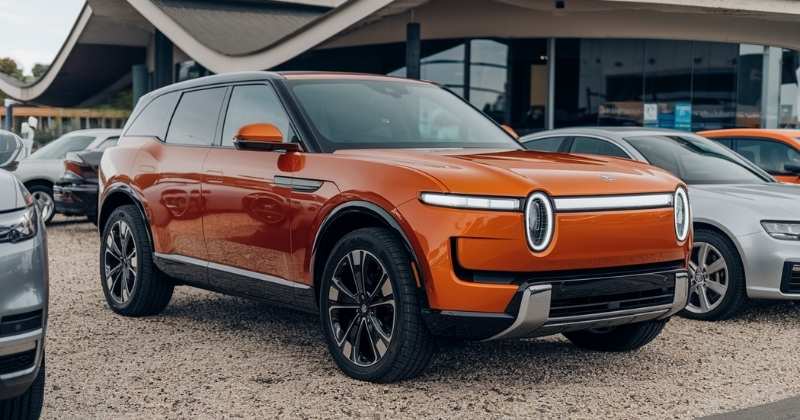
Factors Influencing New Car Prices
Import Duties and Taxes
New car prices in South Africa are heavily influenced by import duties and taxes. Import duties range from 25% to 40%, depending on the type of vehicle. Buyers also pay a 15% Value Added Tax (VAT) on the car’s retail price. Additionally, the ad valorem tax, which is based on the vehicle’s luxury level, further increases costs for high-end models. These taxes significantly raise the price of imported cars, making them more expensive than locally produced vehicles.
Local Assembly and Manufacturing
Local car manufacturing helps keep prices lower than those of fully imported vehicles. Major brands like Toyota, BMW, and Volkswagen assemble cars locally, benefiting from reduced import duties on parts. This lowers production costs, leading to more affordable prices for consumers. Locally assembled models, such as the Toyota Corolla and VW Polo, are often priced more competitively than fully imported alternatives.
Exchange Rate Fluctuations
The strength of the South African Rand directly impacts car prices, especially for imports. A weaker Rand against currencies like the US Dollar or Euro raises import costs, pushing up retail prices. While a stronger Rand may stabilise prices, the currency’s volatility often makes car pricing unpredictable. Even locally assembled cars can be affected by exchange rate shifts due to the import of certain parts.
Government Policies and Incentives
Government policies, such as the Automotive Production and Development Programme (APDP), provide tax incentives to encourage local manufacturing. These policies aim to reduce reliance on imports and keep prices competitive. CO2 emission taxes also affect pricing, with less eco-friendly cars facing higher costs. Electric vehicle (EV) policies are emerging, but EVs remain expensive due to limited infrastructure and higher taxes. These incentives continue to shape the pricing landscape for new cars.
Popular New Car Models and Pricing in South Africa
Economy and Budget-Friendly Cars
For buyers seeking affordability, economy cars are a practical option. These models provide essential features at a price point that caters to budget-conscious consumers. Some of the top economy cars in South Africa include:
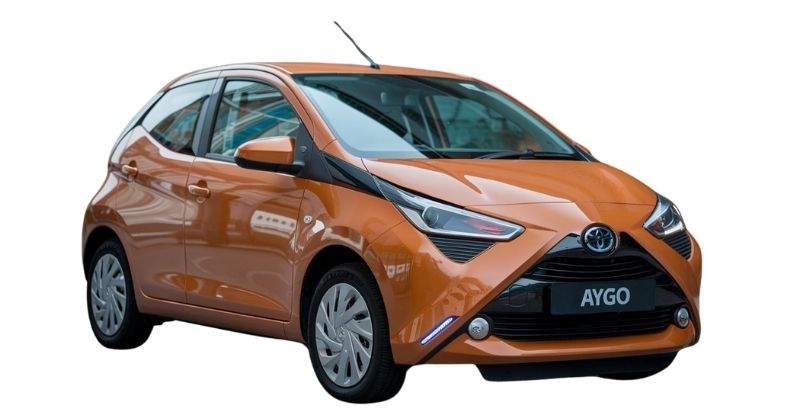
Toyota Aygo: Known for its reliability and fuel efficiency, the Aygo is one of the cheapest new cars available in South Africa, with prices starting around R200 000 ($10 943.50). Its compact size makes it perfect for city driving.

Hyundai i10: Priced slightly higher than the Aygo, the Hyundai i10 starts at around R210 000 ($11 463.75). It offers more interior space while maintaining excellent fuel economy.
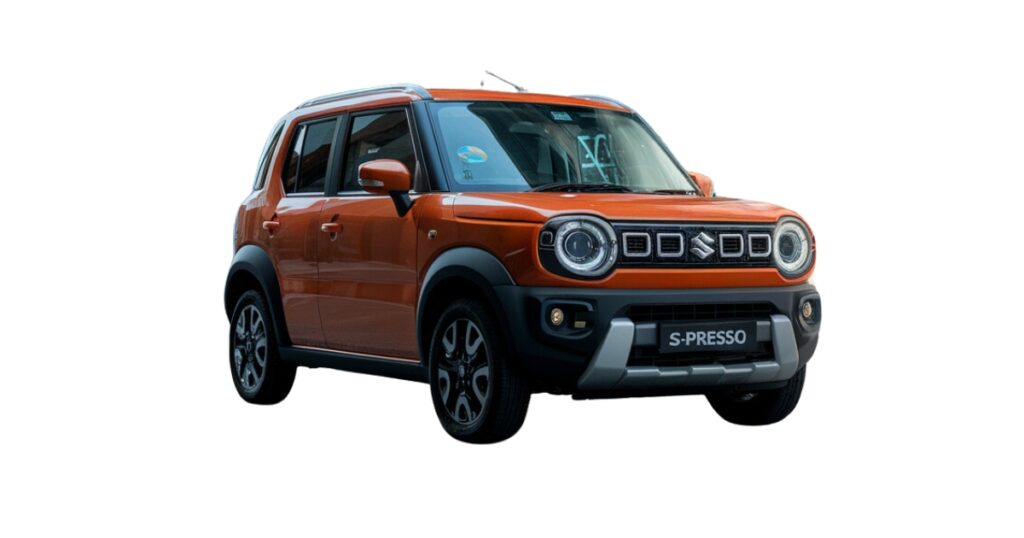
Suzuki S-Presso: Starting at approximately R160 000 ($8 740.80), the S-Presso is a small, cost-effective car with basic features and low maintenance costs.
Economy cars in South Africa are typically priced between R160 000 ($8 740.80) and R250 000 ($13 655.00), making them a cost-effective option for first-time buyers or those seeking a second vehicle. Their affordability is driven by features such as small, fuel-efficient engines, limited but practical tech features like basic infotainment systems, lower manufacturing costs due to fewer luxury add-ons, and reduced maintenance and service expenses.
As new car prices in 2024 continue to evolve, understanding your financing options is crucial. Whether you’re considering leasing or buying, our detailed guide on the Best Way to Finance a Car breaks down the pros and cons of each method, helping you make an informed decision that aligns with your financial goals and lifestyle.
Mid-Range Family Cars
For families looking for more space and comfort, mid-range vehicles strike a balance between affordability and additional features. Popular choices in this category include:

Toyota Corolla: One of South Africa’s best-selling sedans, the Corolla starts at about R370 000 ($20 189.25). It offers a spacious interior, excellent reliability, and good fuel economy.
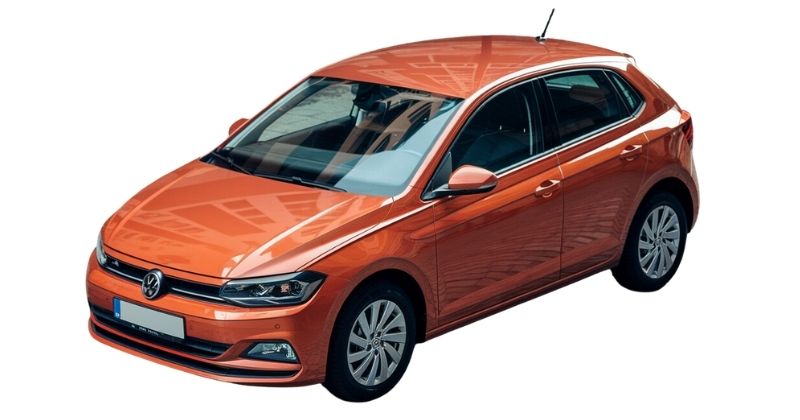
VW Polo: Priced from R340 000 ($18 598.00), the VW Polo is a popular choice in both hatchback and sedan forms. It combines a stylish design, good safety features, and advanced tech options.
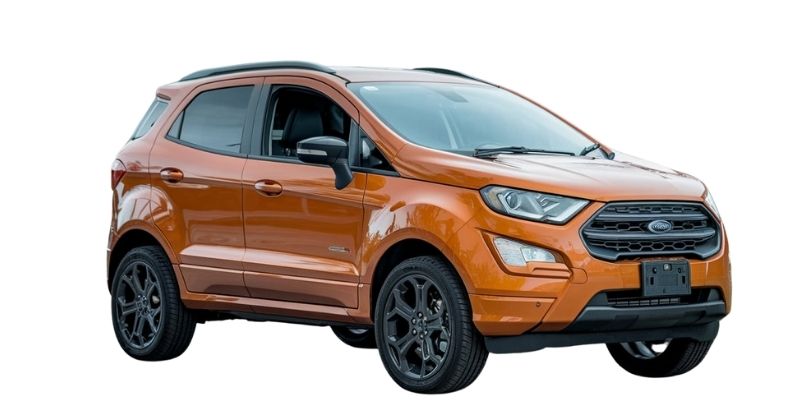
Ford EcoSport: A compact SUV option, starting at approximately R380 000 ($20 846.00). This car offers elevated driving positions, decent cargo space, and family-friendly features.
Mid-range family cars in South Africa are generally priced between R300 000 ($16 421.25) and R450 000 ($24 587.25), offering a balance between affordability and additional features. These vehicles typically come with roomier interiors, more comfortable seating, and improved safety features like airbags and advanced braking systems. Families benefit from larger boot space for extra storage, while modern connectivity options such as Bluetooth, USB ports, and sometimes touchscreens add to the convenience. Though slightly more expensive than economy cars, the combination of comfort, space, and safety makes mid-range cars a practical long-term choice, especially for growing families.
Along with the upfront costs, new car buyers must consider the impact of Car Value Depreciation. This comprehensive guide sheds light on how rapidly new cars can lose value and offers tips on preserving your vehicle’s worth over time.
Luxury and Premium Cars
For those in the market for luxury and premium cars, South Africa offers a wide selection of high-end models. Popular brands include:
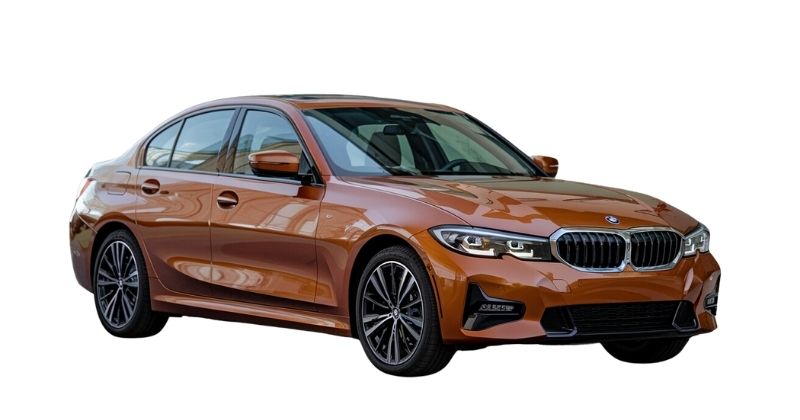
BMW 3 Series: Starting around R850 000 ($46 449.00), the 3 Series is known for its performance, sleek design, and premium features like advanced infotainment and driver-assist technologies.
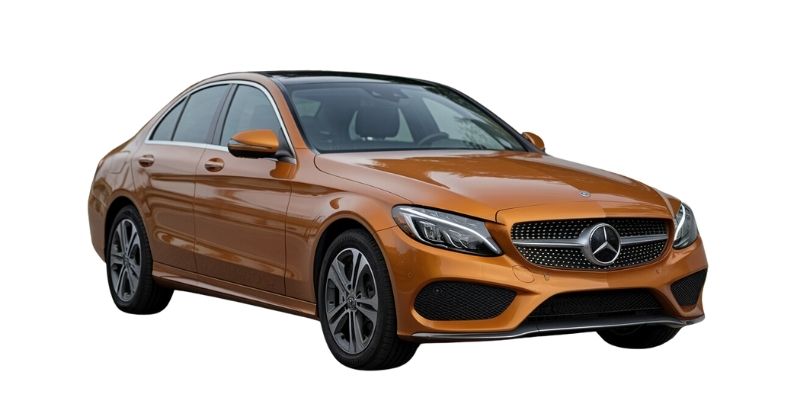
Mercedes-Benz C-Class: Priced from R900 000 ($49 020.00), this model delivers a luxurious interior, smooth ride, and advanced tech features, appealing to executives and high-end buyers.
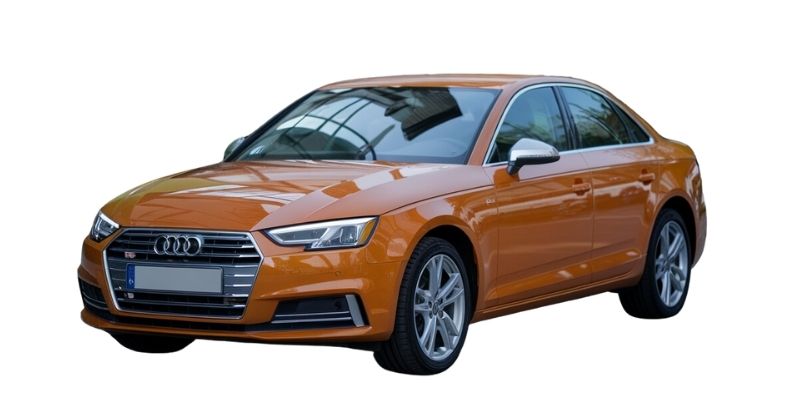
Audi A4: Beginning at about R700 000 ($38 636.00), the Audi A4 combines luxury with performance, featuring top-quality interior materials and modern tech.
Luxury cars in South Africa typically start at R700 000 ($38 636.00) and can exceed R1.5 million ($81 531.00), depending on the model and customisation options. These vehicles face higher import duties and taxes, including carbon emissions taxes, which significantly increase their overall cost. This makes premium cars more expensive in South Africa compared to other regions, especially when factoring in luxury features such as leather interiors and advanced tech packages. Despite the higher price, luxury cars offer exceptional comfort, performance, and prestige, making them a desirable choice for those seeking status and an outstanding driving experience.
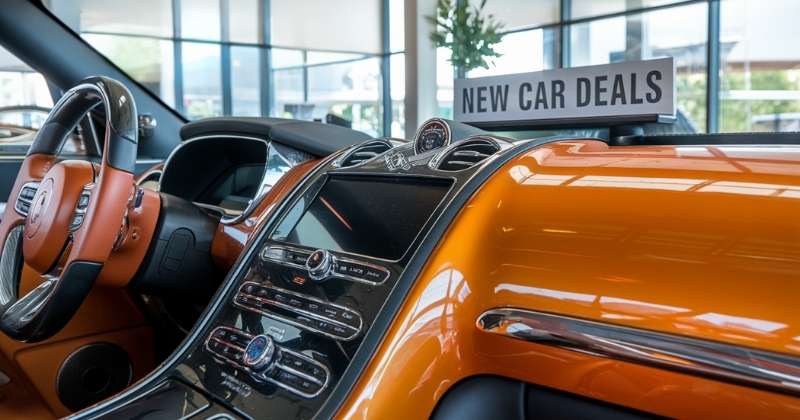
Hidden Costs to Consider When Buying a New Car
When purchasing a new car in South Africa, the price you see on the sticker isn’t the full cost you’ll be paying. There are several hidden costs that can add up quickly. These include licensing fees, insurance premiums, and maintenance plans. It’s essential to budget for these expenses to avoid being caught off guard after your purchase.
Licensing and Registration Fees
Before you can legally drive your new car, you need to handle licensing and registration. These costs vary based on the vehicle’s make, model, and weight. Generally, the registration fee can range from approximately R1 000 to R1 500, but it can be higher for luxury or heavy vehicles. Additionally, you may need to pay for a roadworthy certificate if your vehicle is pre-owned, which typically costs around R500 to R1 000.
Overall, it’s crucial to factor in these fees as part of your total vehicle budget, as they contribute significantly to the overall cost of ownership. Understanding these expenses will help ensure a smoother transition to owning your new car.
| Cost Type | Description | Price Range |
|---|---|---|
| Licensing Fees | Calculated based on the vehicle’s weight and engine capacity. | R1,500 to R2,500 annually |
| Vehicle Registration | A mandatory, once-off registration fee that varies by province. | R500 to R700 |
| Roadworthy Certificate | Included for new cars, but second-hand car buyers may need to pay for this test. | R500 to R1,000 |
Insurance Costs
Insurance is another critical cost when buying a new car. It’s not just a matter of protecting your vehicle but also ensuring you comply with the law.
| Insurance Type | Description | Price Range |
|---|---|---|
| Mandatory Insurance | Third-party liability insurance is essential to cover damage to others in the event of an accident, though full vehicle insurance is not legally required. | Varies based on provider |
| Comprehensive Insurance | Provides protection against theft, damage, and accidents. Premiums depend on the vehicle’s value, location, driver’s age, experience, and claims history. | R800 to R2,500 per month |
| Typical Costs | The average cost of comprehensive insurance for South African drivers. | R800 to R2,500 per month |
Maintenance and Service Plans
To keep your car running smoothly, regular servicing is essential. Many new cars come with a service plan, but it’s vital to understand what is covered and what isn’t.
Most manufacturers recommend servicing your car every 10,000 to 15,000 kilometres, which is crucial for maintaining the warranty on newer vehicles. A standard service plan typically covers regular services like oil and filter changes, while a maintenance plan also includes wear-and-tear items such as brake pads and wiper blades.
Maintenance plans provide more comprehensive coverage but come at a higher cost. Common inclusions in a service plan are engine oil, filters, brake fluid replacement, and inspections of critical systems.
Brands like Toyota and Volkswagen often include service plans in the car price, but it’s worth checking how long these plans last and whether you may need to upgrade to a maintenance plan later.
Conclusion
New car prices in South Africa are influenced by various factors, including import duties, local manufacturing, exchange rates, and government policies. Imported vehicles incur higher costs due to taxes and currency fluctuations, while locally assembled cars from brands like Toyota and Volkswagen tend to offer more competitive pricing. Regional variations also impact pricing, with higher costs often observed in rural areas due to logistics challenges and lower dealership competition. Understanding these key factors enables consumers to make informed decisions when purchasing a new car, whether they are seeking economy models or luxury vehicles.
Frequently Asked Questions
New car prices in South Africa are elevated due to several factors, including import duties, VAT, and ad valorem taxes on luxury models. Additionally, currency fluctuations impact the cost of imported vehicles, driving up retail prices. Even locally assembled cars can be more expensive than in some other countries because of production costs and taxes.
Yes, locally assembled cars are typically more affordable than fully imported models. Brands such as Toyota, Volkswagen, and BMW manufacture vehicles in South Africa, benefiting from lower import duties on parts, which results in reduced production costs and more competitive prices for consumers.
Exchange rates significantly influence the pricing of new cars, particularly for imported models. A weaker Rand raises the cost of importing vehicles and parts, resulting in higher retail prices. Conversely, a stronger Rand can help stabilise or lower prices, but fluctuations in the Rand contribute to unpredictable pricing.
Beyond the vehicle’s price, buyers should budget for extra expenses like VAT (15%), licensing and registration fees, and insurance premiums. Optional costs, such as maintenance plans or extended warranties, can also contribute to the overall expense.
Yes, car prices can vary between urban and rural areas. In major cities like Johannesburg and Cape Town, increased competition among dealerships often leads to more competitive pricing and promotions. In rural areas, limited dealership options and higher transportation costs can result in higher car prices.
Fast, uncomplicated, and trustworthy loan comparisons
At Arcadia Finance, you can compare loan offers from multiple lenders with no obligation and free of charge. Get a clear overview of your options and choose the best deal for you.
Fill out our form today to easily compare interest rates from 19 banks and find the right loan for you.



